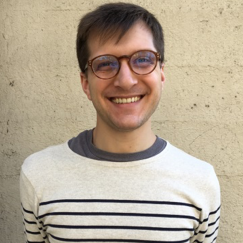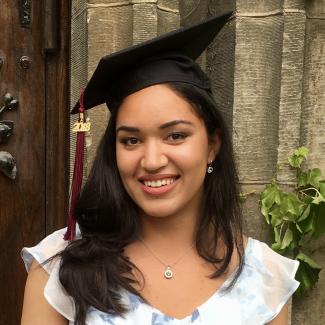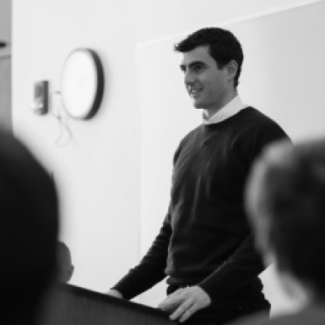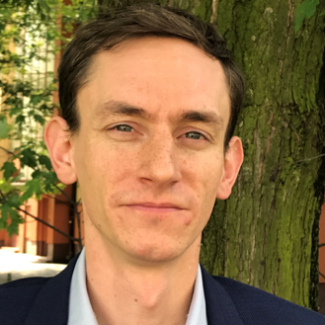Below are brief testimonials from a few of the many Department of Philosophy alums who have gone on to careers in academia, describing in their own words how studying philosophy at the University of Chicago has shaped their academic endeavors.
Ethan Jerzak, PhD Student, Philosophy, University of California, Berkeley (BA 2010)

The philosophy major at the University of Chicago was the best preparation for graduate school that I could have hoped for. Not in the sense that it taught me exactly those things that I ended up later researching, but rather because the breadth of courses offered, and the depth of inquiry in those courses, showed me how to approach philosophical problems generally: to motivate them, not as mere curiosities of history, but as arising directly and naturally out of our attempts to understand the world and our place in it. I still draw on those lessons while trying to engage with my interlocutors carefully, charitably, and critically—whether those interlocutors are Heidegger and Kant, or contemporary logicians and formal semanticists.
Lauren Richardson, PhD Student, Philosophy, Rutgers University (BA 2018)

I credit philosophy for truly introducing me to the “life of the mind” at the University of Chicago. Studying philosophy challenged me to think rigorously and analytically, to engage critically with texts and ideas in the “canon,” and to set very high standards for clarity and precision of thought and argument in my own work. Philosophy continues to make me question my assumptions about myself and the world around me, and I consider it an immense privilege to be able to spend my days thinking about topics as varied and interesting as language, thought, reasoning, communication, agency, obligation... the list goes on. Writing a B.A. thesis provided me with an excellent opportunity to work closely with faculty in the department, and gave me a real idea of what it takes to do independent research in academic philosophy. I will be continuing my philosophy studies in a Ph.D. program at Rutgers University in the fall, and I was very fortunate to have the tireless support and mentorship of faculty at UChicago as I went through the daunting Ph.D. admissions process. UChicago’s department gave me the disciplinary exposure and intellectual training necessary for taking the next step toward working as an academic philosopher; I will always look back fondly on my time here.
Julian Katz-Samuels, Fellow at the Eric & Wendy Schmidt Data Science for Social Good Fellowship, University of Michigan (BA 2012)
Two of the most important skills in machine learning research are: (i) how to formulate an interesting question and (ii) how to construct an argument. My undergraduate studies in philosophy were critical to my development of these skills. My philosophy papers were rarely based on simple and obvious “yes” or “no” questions. Often, the main challenge was figuring out what kind of interesting point or question I could make about some philosophical argument. Today, the content of my work is machine learning, but the exercise is very similar. There are infinitely many machine learning questions, but finding one that meets strict standards of wide applicability, mathematical novelty, and algorithmic elegance is quite challenging. Furthermore, once I found an interesting philosophical question in my philosophy papers, the next task was to formulate an airtight argument. In machine learning, it is similarly critical to assess how useful or novel your work is, whether there are any shortcomings, and how difficult the problem is. All of this amounts to building an argument, considering counterarguments, and formulating rebuttals—all of which are skills that I honed as an undergraduate in philosophy.
Matthew Mandelkern, Research Fellow, Philosophy, All Souls College, Oxford (BA 2011)

I became fascinated by philosophy as an undergrad at Chicago, drawn in by the philosophy faculty’s amazing teachers and students. I wrote a thesis on Aristotle’s action theory with Professor Agnes Callard and went on to do graduate work at MIT, where I was drawn in by the philosophy of language, which is now my area of focus. I’m now a research fellow at All Souls College, Oxford. Chicago gave me a wonderful introduction to philosophy, as well as enduring relationships with wonderful professors as well as some very talented classmates who have also gone on in philosophy and remain close friends.
Thomas Salem Manganaro, Assistant Professor of English, University of Richmond (BA 2009)

Being a philosophy major at the University of Chicago was essential to my pursuing a career as an academic in English literature. That experience made me internalize standards of clarity and argumentation in ways I did not recognize at the time. It also introduced me to specific ideas, arguments, and questions that I continue to think and write about. Even though I work in a different field in a different place, sometimes I wonder if at heart I’m still trying to be a good UChicago philosophy major.
